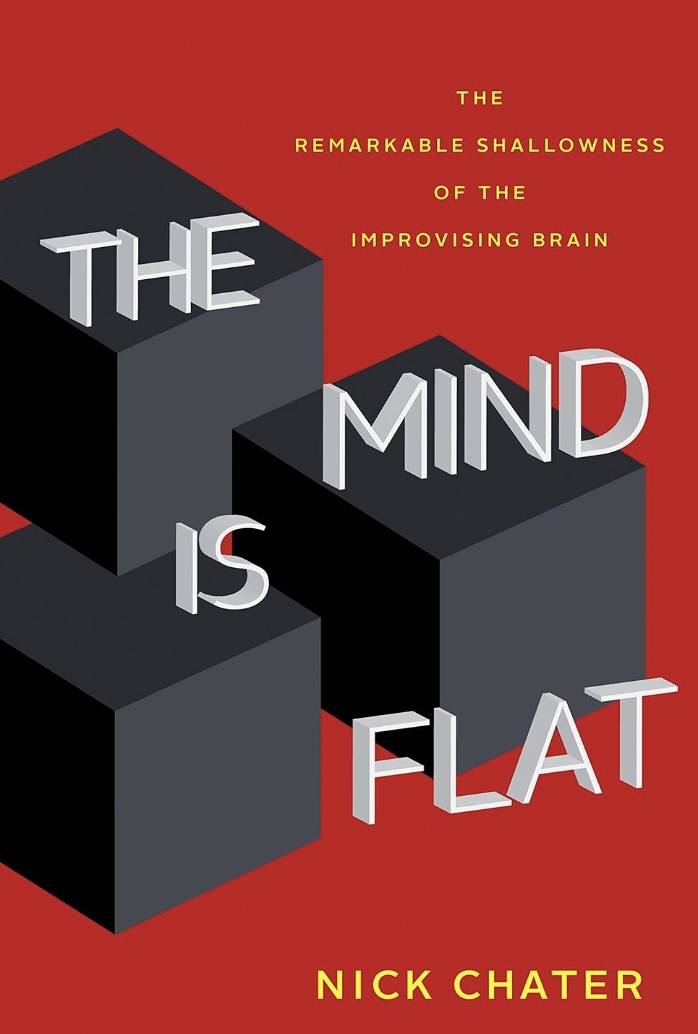Book review of The Mind Is Flat by Nick Chater

In crafting a summary of “The Mind is Flat: The Remarkable Shallowness of the Improvising Brain” by Nick Chater, it’s important to juxtapose the book’s central thesis with the counterargument that the mind is indeed involved and requires a structured environment to develop expertise. Chater’s work provocatively argues against the depth model of the mind, suggesting instead that our mental processes are improvisational and surface-level, lacking the deep, unconscious underpinnings traditionally believed to guide our thoughts and behaviors. This summary will explore both the claims presented in “The Mind is Flat” and the contrasting perspective emphasizing the complexity and depth of human cognition.
Chater posits that the mind constructs its reality moment by moment, with our “inner world” being an ad-hoc fabrication rather than a deep, structured reservoir of thoughts, beliefs, and desires. He challenges the notion of a subconscious mind filled with hidden motives and an internal self that governs our actions from the shadows. According to Chater, what we experience as the continuity of thought is merely a seamless narrative crafted by the brain to make sense of the sparse information it receives.
Contrastingly, the counterargument stresses the importance of deep cognitive processes involved in learning and expertise development. This viewpoint argues that the concept of a “flat” mind oversimplifies the intricate workings of the brain, particularly when it comes to acquiring complex skills and knowledge. According to this perspective, the development of expertise relies on what is often referred to as Stage 2 cognitive systems—processes that necessitate a rich, engaging environment, repeated practice, timely and relevant feedback, and, crucially, deliberate practice. These elements are foundational for the mind to internalize skills deeply, enabling automaticity and the nuanced understanding characteristic of true expertise.
Furthermore, critics of Chater’s thesis might argue that the evidence of unconscious processing and the benefits of deliberate practice underscore the existence of deeper cognitive structures. The transformation from novice to expert in any field involves far more than surface-level improvisation; it requires the mind to undergo significant reorganization, developing complex schemas and patterns of thought that enable advanced reasoning and performance.
In conclusion, while “The Mind is Flat” presents a compelling argument for reevaluating our understanding of the mind’s architecture, it’s essential to consider the contrasting viewpoint. This perspective highlights the complexities of cognitive development and the need for a rich, structured environment to foster expertise. The debate between these viewpoints enriches our understanding of the mind, challenging us to reconcile the apparent simplicity of mental improvisation with the depth required for learning and mastery.